كيفية استخدام hjust & مجرد نقل العناصر في ggplot2
يمكنك استخدام الوسيطتين hjust و vjust لنقل العناصر أفقيًا وعموديًا على التوالي في ggplot2.
توضح الأمثلة التالية كيفية استخدام hjust و vjust في سيناريوهات مختلفة.
مثال 1: نقل موضع العنوان في ggplot2
يوضح التعليمة البرمجية التالية كيفية إنشاء مخطط مبعثر في ggplot2 بعنوان في الموضع الافتراضي (محاذاة إلى اليسار):
library (ggplot2)
#create scatter plot with title in default position
ggplot(data=mtcars, aes(x=mpg, y=wt)) +
geom_point() +
ggtitle(" Plot Title ")
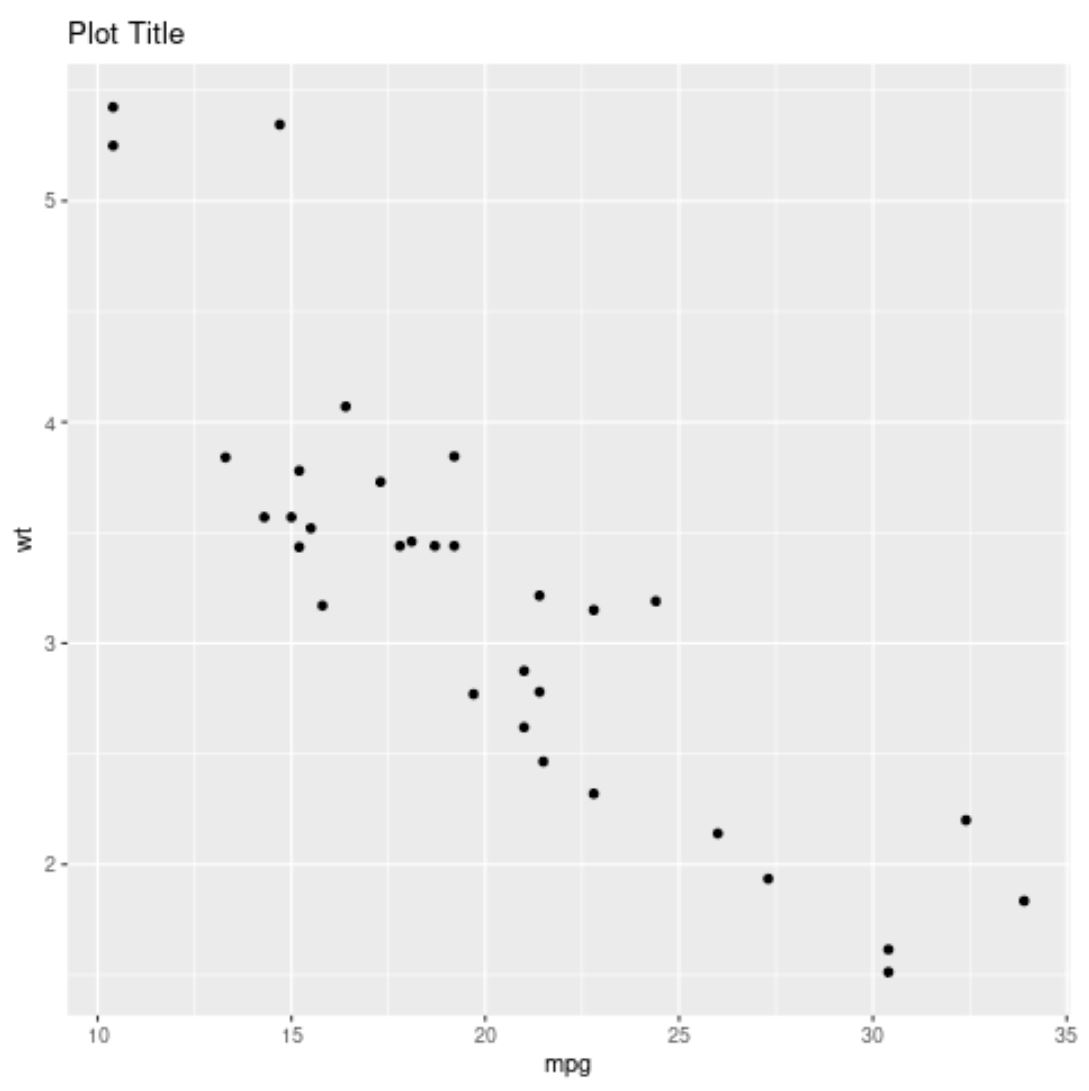
والكود التالي يوضح كيفية توسيط العنوان باستخدام hjust=0.5 :
library (ggplot2)
#create scatter plot with title center-aligned
ggplot(data=mtcars, aes(x=mpg, y=wt)) +
geom_point() +
ggtitle(" Plot Title ") +
theme(plot. title = element_text(hjust= .5 ))
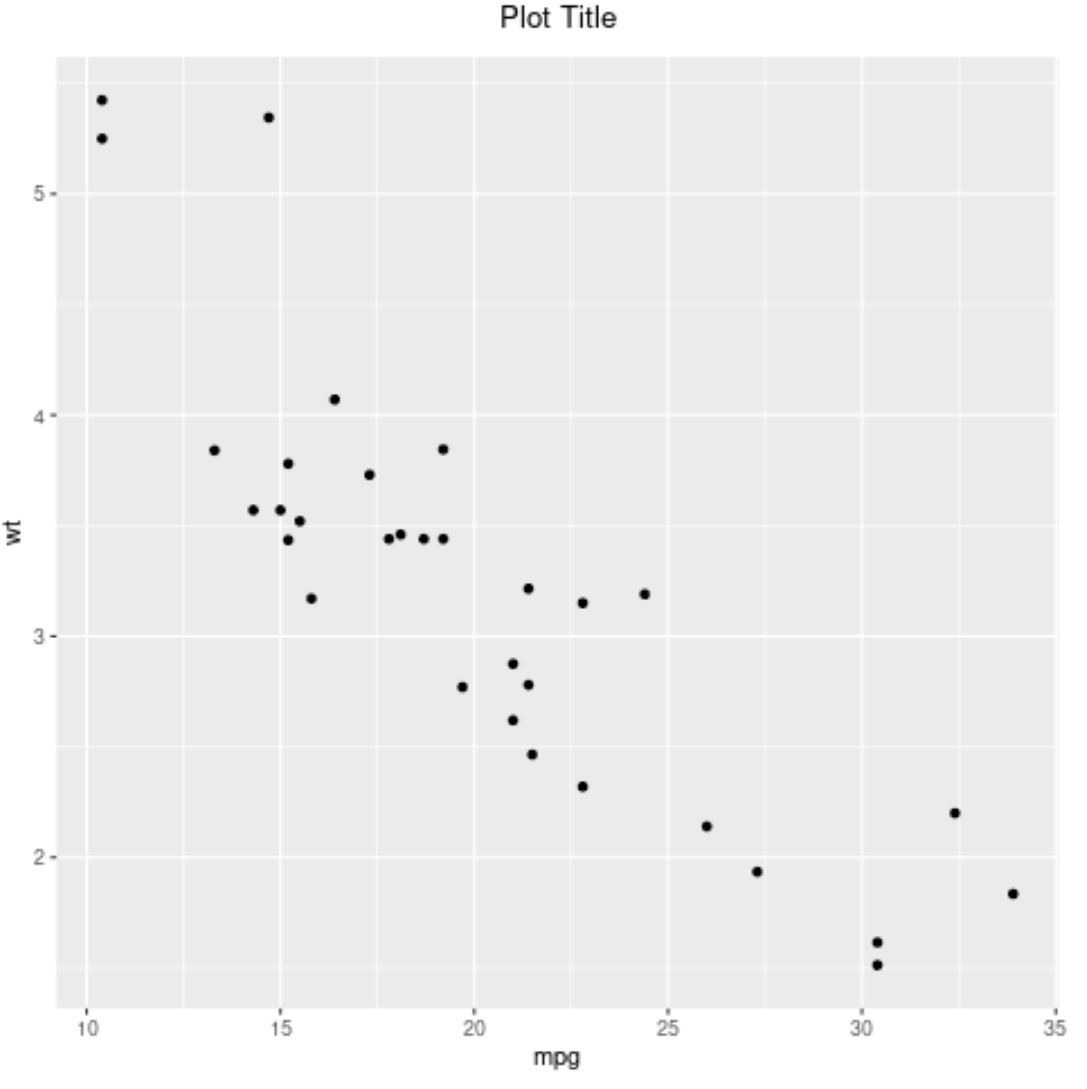
ملحوظة : يمكنك أيضًا استخدام hjust=1 لمحاذاة العنوان إلى اليمين.
مثال 2: نقل موضع تسمية المحور في ggplot2
يوضح التعليمة البرمجية التالية كيفية إنشاء مخطط شريطي في ggplot2 حيث يتم تدوير تسميات المحور السيني بمقدار 90 درجة لتسهيل قراءتها:
library (ggplot2)
#create data frame
df = data. frame (team=c('The Amazing Amazon Anteaters',
'The Rowdy Racing Raccoons',
'The Crazy Camping Cobras'),
dots=c(14, 22, 11))
#create bar plot to visualize points scored by each team
ggplot(data=df, aes(x=team, y=points)) +
geom_bar(stat=' identity ') +
theme(axis. text . x = element_text(angle= 90 ))
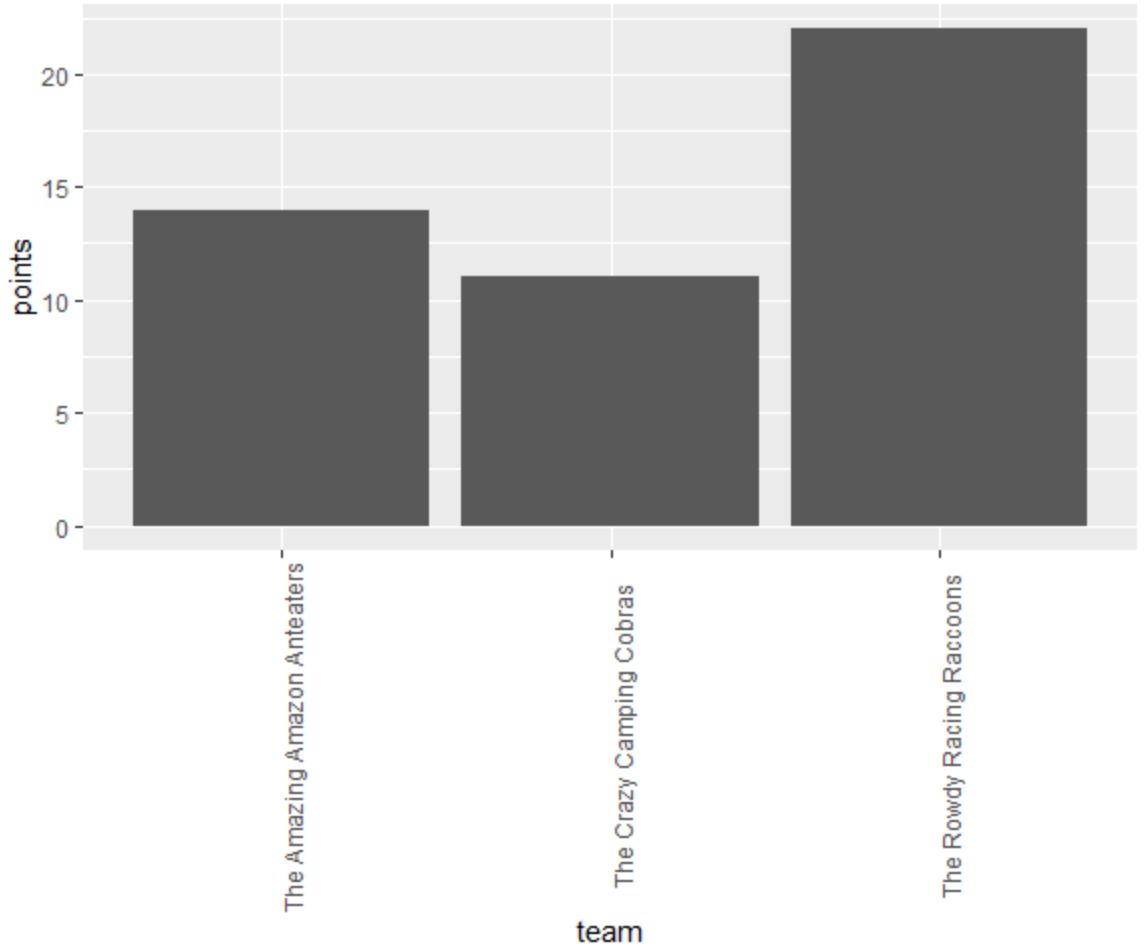
يمكننا استخدام الوسيطتين hjust و vjust لضبط تسميات المحور السيني بحيث تتماشى بشكل وثيق مع علامات التجزئة للمحور السيني:
library (ggplot2)
#create data frame
df = data. frame (team=c('The Amazing Amazon Anteaters',
'The Rowdy Racing Raccoons',
'The Crazy Camping Cobras'),
dots=c(14, 22, 11))
#create bar plot to visualize points scored by each team
ggplot(data=df, aes(x=team, y=points)) +
geom_bar(stat=' identity ') +
theme(axis. text . x = element_text(angle= 90 , vjust= .5 , hjust= 1 )
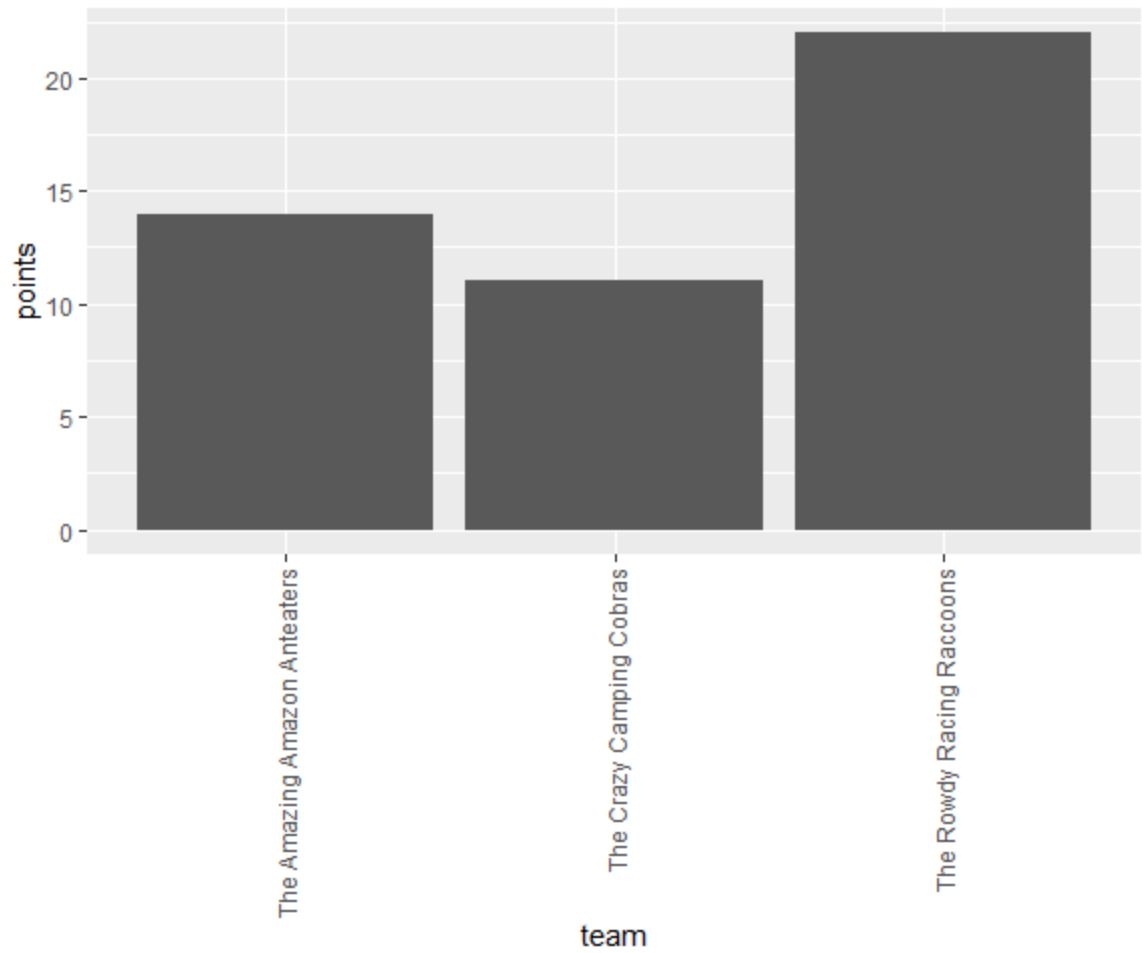
مثال 3: نقل موضع النص في ggplot2
يوضح التعليمة البرمجية التالية كيفية إنشاء مخطط مبعثر في ggplot2 مع نص مشروح لكل نقطة في المخطط:
library (ggplot2)
#create data frame
df <- data. frame (player=c('Brad', 'Ty', 'Spencer', 'Luke', 'Max'),
dots=c(17, 5, 12, 20, 22),
assists=c(4, 3, 7, 7, 5))
#create scatter plot with annotated labels
ggplot(df) +
geom_point(aes(x=points, y=assists)) +
geom_text(aes(x=points, y=assists, label=player))
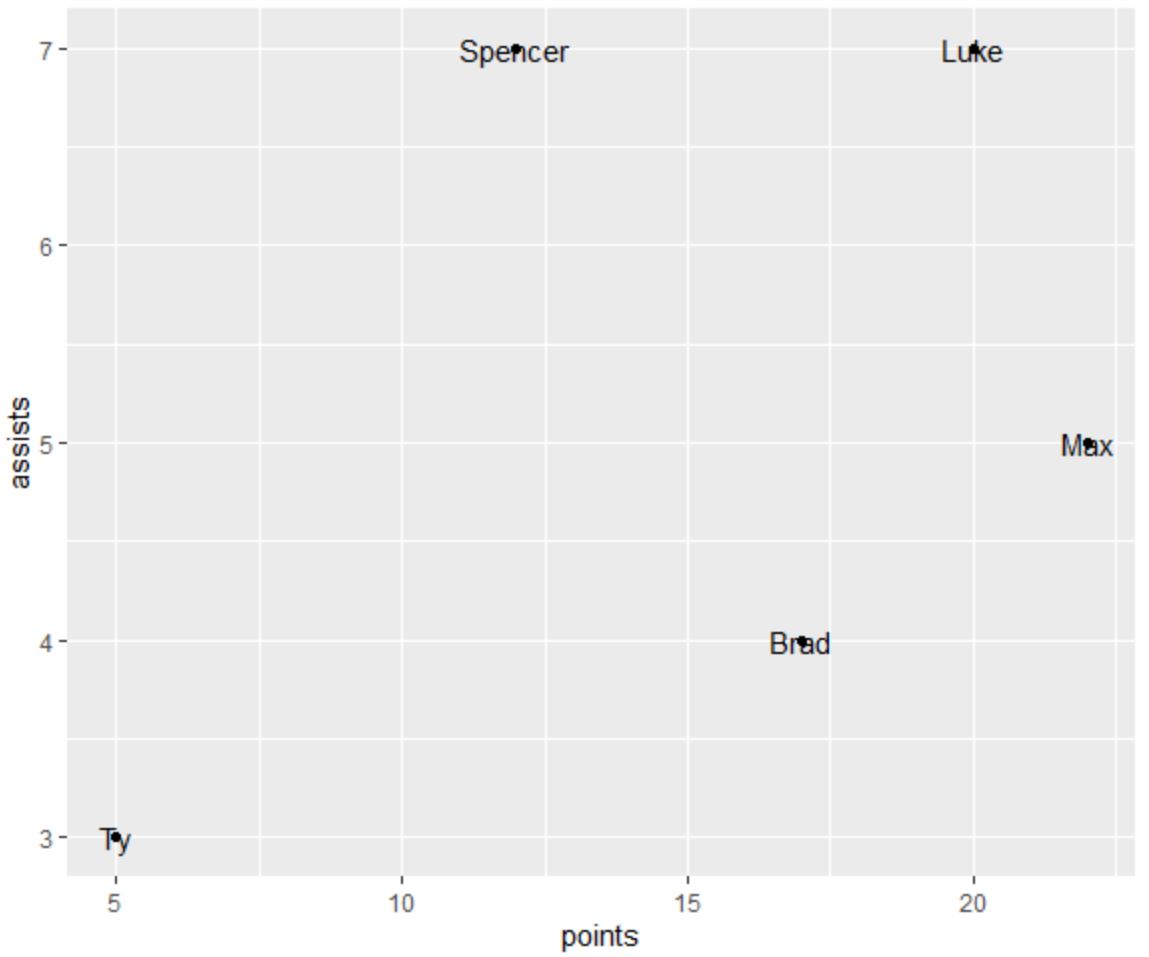
يمكننا استخدام الوسيط vjust لتحريك عناصر النص عموديًا بحيث تكون أسهل في القراءة:
library (ggplot2)
#create data frame
df <- data. frame (player=c('Brad', 'Ty', 'Spencer', 'Luke', 'Max'),
dots=c(17, 5, 12, 20, 22),
assists=c(4, 3, 7, 7, 5))
#create scatter plot with annotated labels
ggplot(df) +
geom_point(aes(x=points, y=assists)) +
geom_text(aes(x=points, y=assists, label=player), vjust= -.6 )
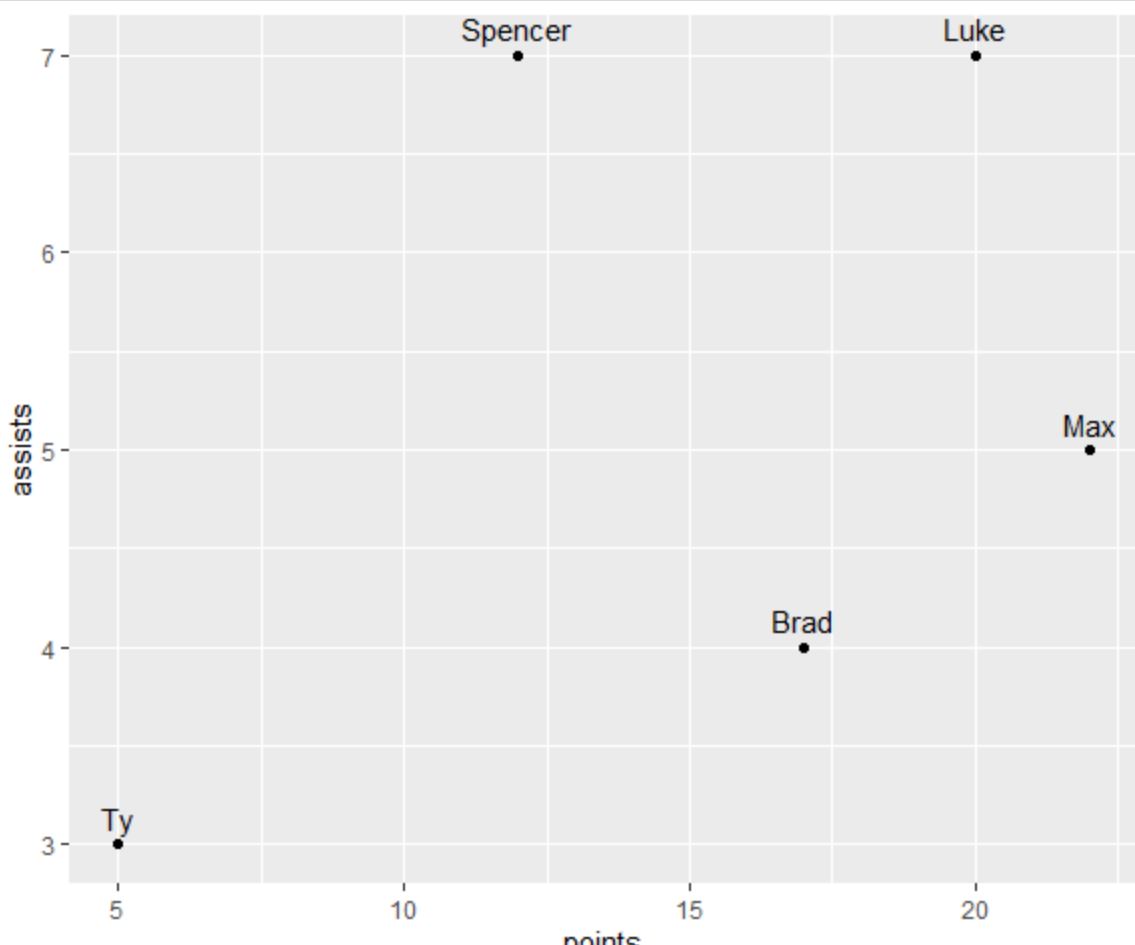
يمكننا أيضًا استخدام قيمة موجبة لـ vjust لنقل عناصر النص للأسفل عموديًا:
library (ggplot2)
#create data frame
df <- data. frame (player=c('Brad', 'Ty', 'Spencer', 'Luke', 'Max'),
dots=c(17, 5, 12, 20, 22),
assists=c(4, 3, 7, 7, 5))
#create scatter plot with annotated labels
ggplot(df) +
geom_point(aes(x=points, y=assists)) +
geom_text(aes(x=points, y=assists, label=player), vjust= 1.2 )
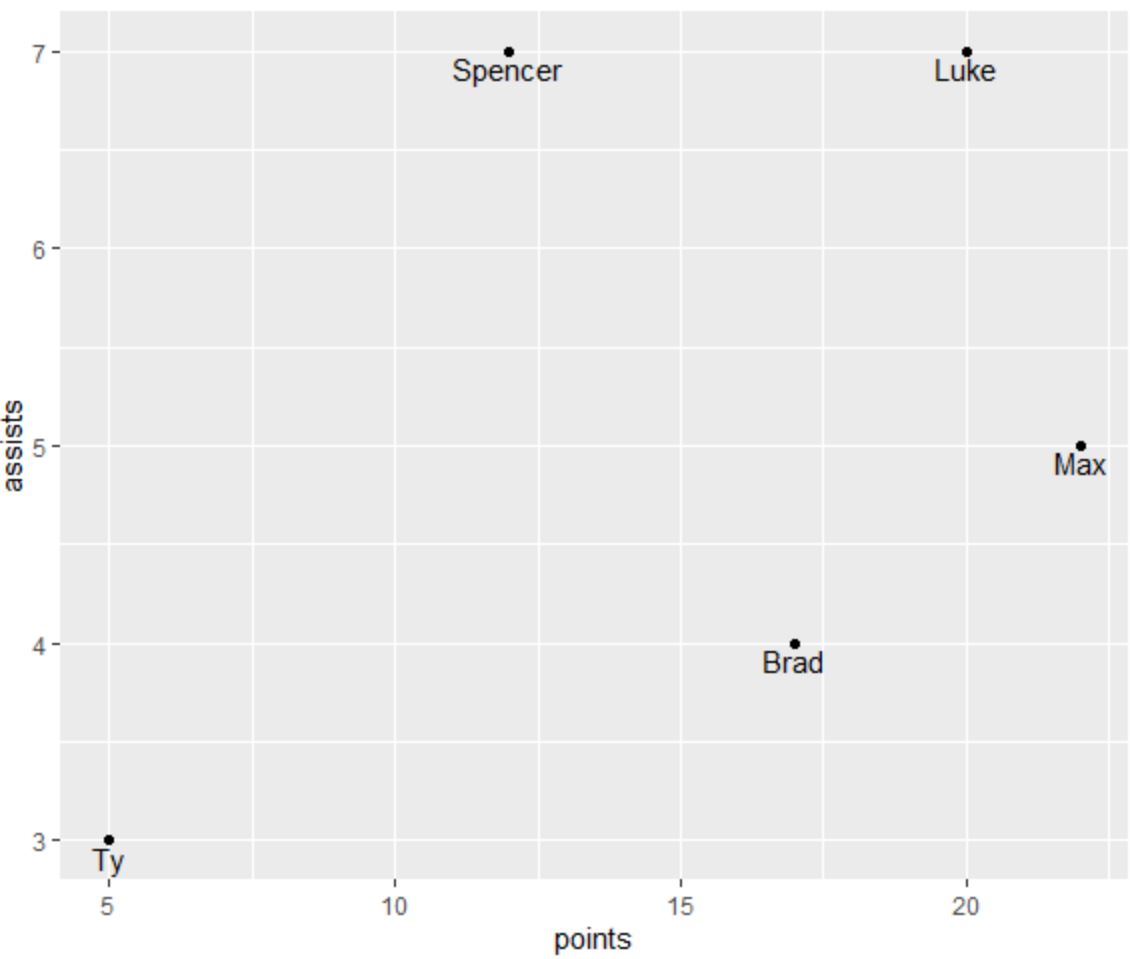
يوجد الآن النص المشروح أسفل كل نقطة في المخطط.
مصادر إضافية
تشرح البرامج التعليمية التالية كيفية تنفيذ المهام الشائعة الأخرى في ggplot2:
كيفية تغيير عنوان الأسطورة في ggplot2
كيفية تدوير تسميات المحور في ggplot2
كيفية الإصلاح في R: لا يمكن العثور على وظيفة “ggplot”